Everyone’s been sold the myth that sheer grit gets results, but science and experience tell a different story. Willpower isn’t enough to carry you through life’s chaos. The good news? You can succeed without white-knuckling it. With mental discipline for success, smarter systems can replace willpower, keeping your goals on track. This post unpacks why willpower isn’t enough and shares five practical steps to build unstoppable progress, woven with stories and metaphors to spark hope. Ready to ditch the grind and feel the thrill of winning? Let’s dive in!
Picture this: You’re all in, fueled by a burst of determination to crush that goal—hit the gym daily, finish a work project, or finally organize the garage. Coffee in hand, you’re unstoppable… until noon, when a stressful email, a kid’s meltdown, or plain old fatigue kicks in. By evening, the gym’s a distant dream, the project’s untouched, and you’re binge-watching instead. Sound familiar? You’re not failing—you’re just banking on willpower, and willpower isn’t enough. It’s like trying to fill a leaky bucket; it drains fast.
Why Willpower Isn’t Enough to Win
Willpower’s like a smartphone battery—full at dawn, drained by lunch. Relying on it alone sets you up for a crash. Take Sarah, a marketing manager, who vowed to write a blog daily. She powered through for three days, fueled by grit, but a tight deadline and a family spat zapped her resolve. By week’s end, her keyboard was silent, her goal abandoned. That’s the trap: willpower isn’t enough because it’s finite and fragile.
Research shows willpower depletes under stress, decision fatigue, or low energy—like when you’re hungry or tired. Emotional triggers, like self-doubt or a harsh critique, erode it further. Distractions, from notifications to Netflix, exploit this weakness, pulling you off course. The result? Goals slip, frustration grows, and you wonder why you can’t “just do it.” Willpower isn’t enough to fight these forces alone, but alternatives like systems and habits can. Here’s what those look like.
What to Do Instead: Smarter Systems for Success
If willpower isn’t enough, what is? Success lies in systems—habits, routines, and environments that make progress automatic. Think of habits as a river carving a path: once set, they flow effortlessly, carrying you toward your goals. Unlike willpower, systems don’t rely on fleeting motivation. They’re built on small, repeatable actions, clear cues, and supportive spaces.
For example, Tom, a student, struggled to study nightly, relying on last-minute cramming. By setting a daily 5-minute study habit tied to his evening coffee, he aced his exams without forcing it. Systems like these, rooted in mental discipline for success, bypass willpower’s limits. The five steps below offer practical ways to build these systems, each designed to keep you engaged and hopeful.
5 Practical Steps to Succeed Without Willpower
Step 1: Create Automatic Habits to Prove Willpower Isn’t Enough
Why It Works: Habits run on autopilot, like brushing your teeth, saving mental energy. They prove willpower isn’t enough by making action effortless, triggering dopamine with consistency.
How to Do It: Pick a micro-habit—e.g., “write 50 words daily.” Tie it to a cue, like “after morning coffee.” Do it for 2 minutes daily.
- Actionable Insight: Use a habit-tracking app like Habitica to log progress.
- Mini-Story: Emma, a freelancer, wanted to pitch clients but procrastinated. A daily 2-minute habit of drafting one sentence led to three new contracts.
- Try This: For one week, practice a 2-minute micro-habit daily tied to a cue.
Step 2: Design Your Environment for Success
Why It Works: Your space shapes your actions. A distraction-free environment proves willpower isn’t enough, reducing temptation and sparking serotonin through control.
How to Do It: Clear barriers—e.g., keep sneakers by the door for running. Silence notifications, use apps like Freedom to block sites. Set up “focus zones” (e.g., a tidy desk).
- Actionable Insight: Place a visual cue, like a sticky note, to prompt action.
- Mini-Story: Priya, a parent, couldn’t exercise until she prepped gym clothes nightly, hitting 30 workouts in a month.
- Try This: For one week, optimize one habit’s environment (e.g., declutter a workspace).
Step 3: Use If-Then Plans to Outsmart Obstacles
Why It Works: Pre-planning handles disruptions, showing willpower isn’t enough when life gets messy. It fosters dopamine through proactive wins.
How to Do It: Write: “If [obstacle], then [action].” E.g., “If I’m too tired to write, then I’ll outline for 5 minutes.” Keep plans handy.
- Actionable Insight: Store if-then plans in a notes app for quick access.
- Mini-Story: Jamal, a teacher, missed workouts when busy. “If no time, then 10 push-ups” kept him fit.
- Try This: For one week, create and follow one if-then plan for a goal.
Step 4: Leverage Accountability Systems
Why It Works: Others keep you on track, proving willpower isn’t enough alone. Accountability triggers oxytocin through connection and serotonin via commitment.
How to Do It: Partner with a friend—e.g., text daily after a task. Join a group, like a writing club. Set check-ins (e.g., weekly calls).
- Actionable Insight: Use WhatsApp for daily accountability check-ins.
- Mini-Story: Maya, a manager, flaked on journaling until a friend’s daily texts kept her writing, filling a notebook.
- Try This: For one week, share one goal’s progress with an accountability partner.
Step 5: Build Routines with Mental Discipline for Success
Why It Works: Routines structure your day, showing willpower isn’t enough without consistency. They foster serotonin through steady progress.
How to Do It: Create a 15-minute morning routine: 5 minutes planning a key task, 5 minutes visualizing success, 5 minutes starting a habit. Stick to it daily.
- Actionable Insight: Tie the routine to a habit, like breakfast, for consistency.
- Mini-Story: Leo, a freelancer, struggled with deadlines until a morning routine of planning and writing boosted output by 40%.
- Try This: For one week, follow a 15-minute morning routine daily.
Your Path Beyond Willpower
You don’t need to grit your teeth to win—willpower isn’t enough, but you’re more than enough. These five steps—habits, environments, plans, accountability, and routines—build systems that make success automatic. Start today: pick one step, take action, and feel the spark of progress. Mental discipline for success carves your path to unstoppable goals.
Ready to transform your life? Reprogram your mind with the Mental Discipline for Success System Kit. Train your subconscious to align with goals, stay laser-focused with a 30-minute daily tracker, and learn from pros weekly. Includes a digital book, 6 videos, a tracker sheet, and printables. Start now at mentaldisciplineforsuccess.com and achieve your success!


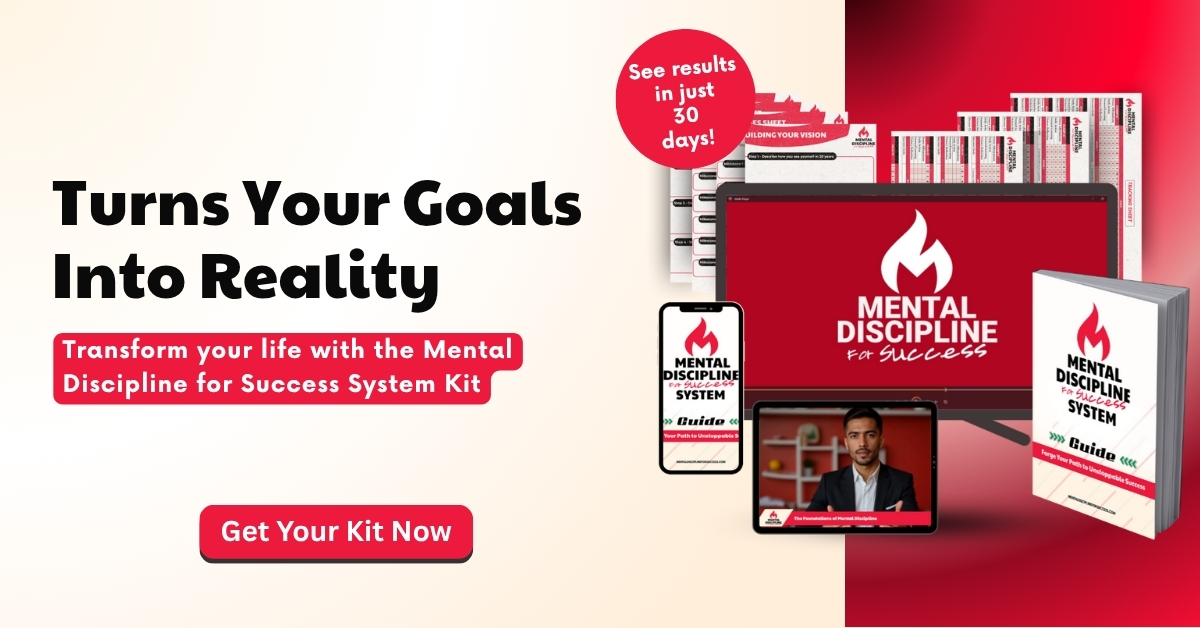
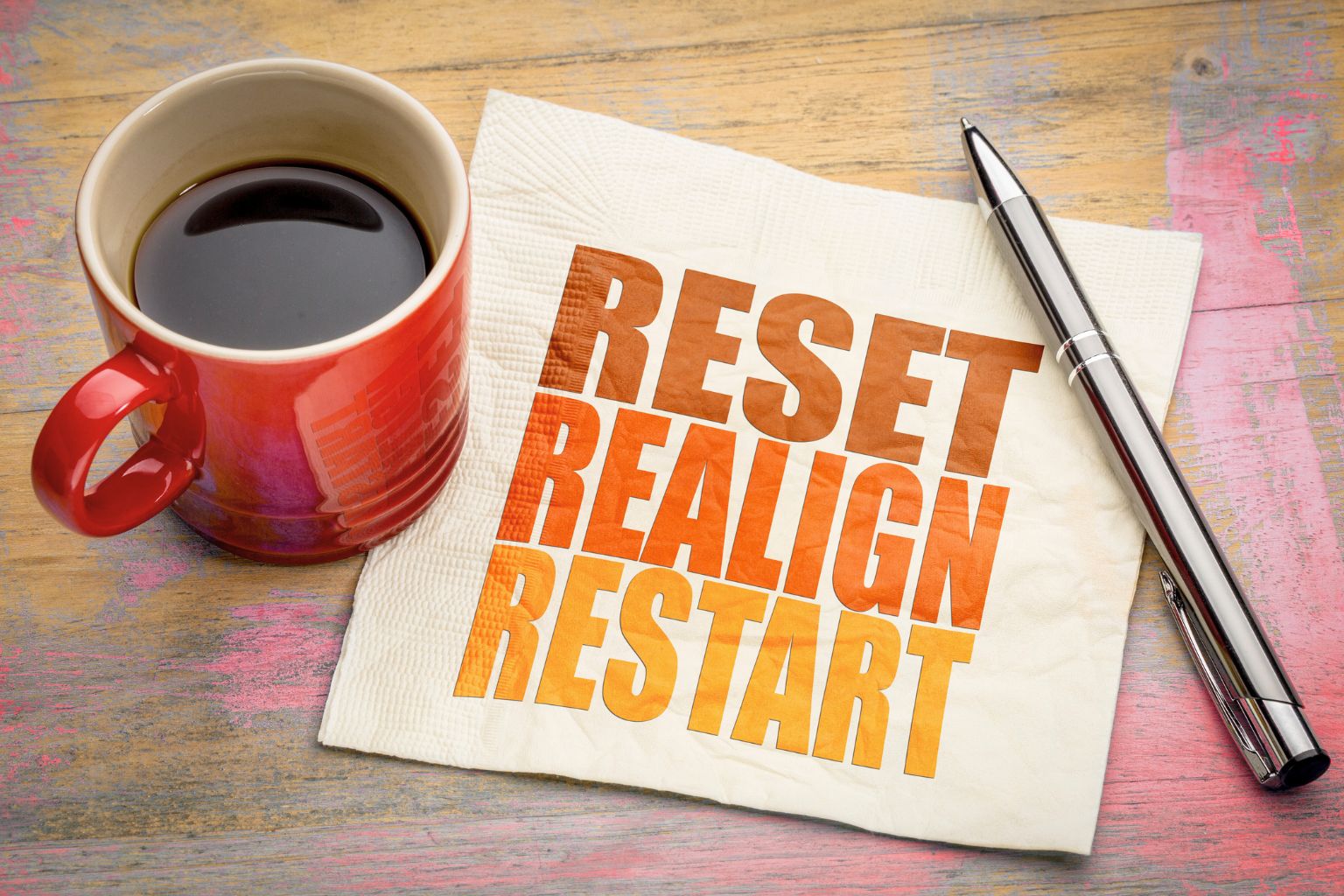

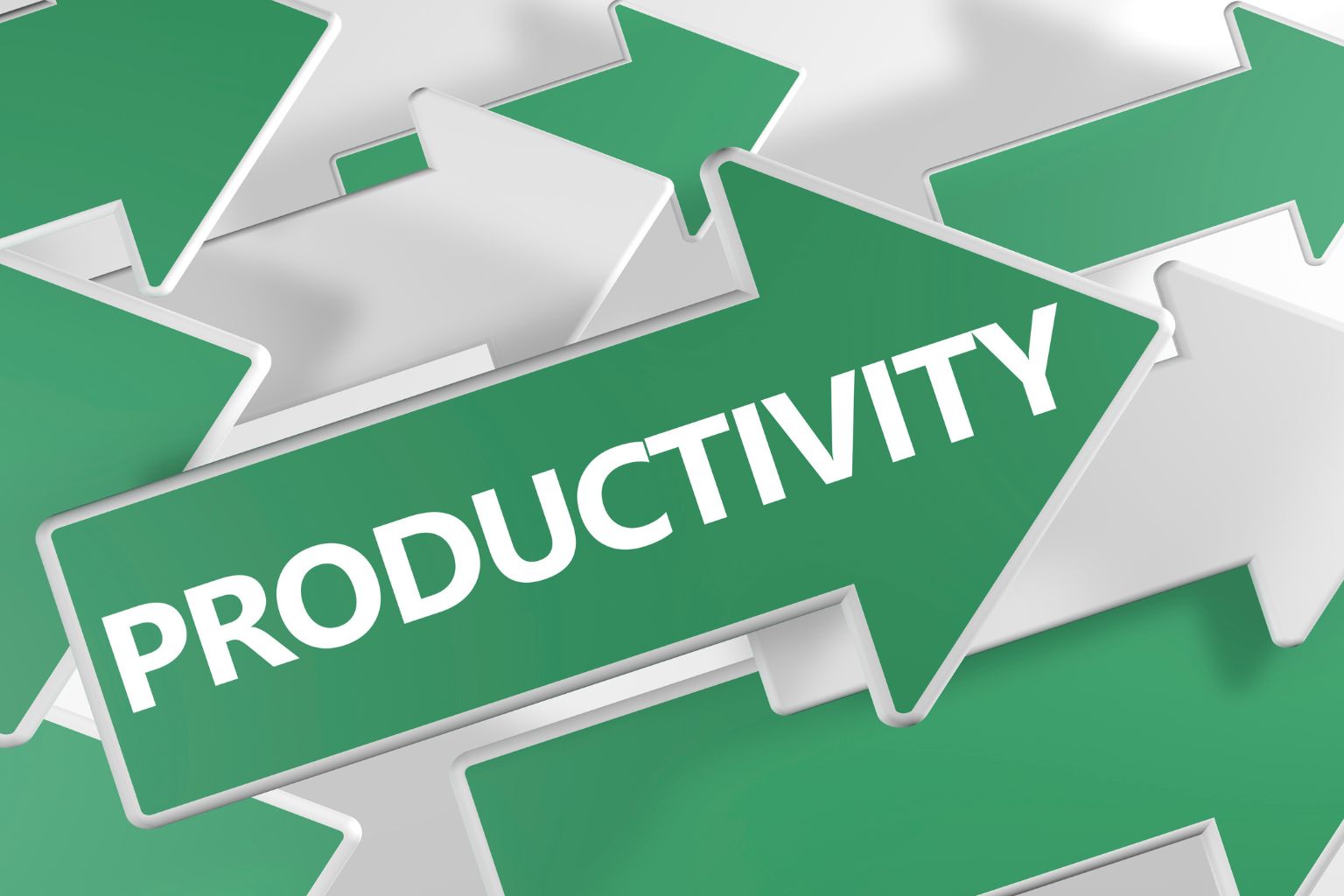


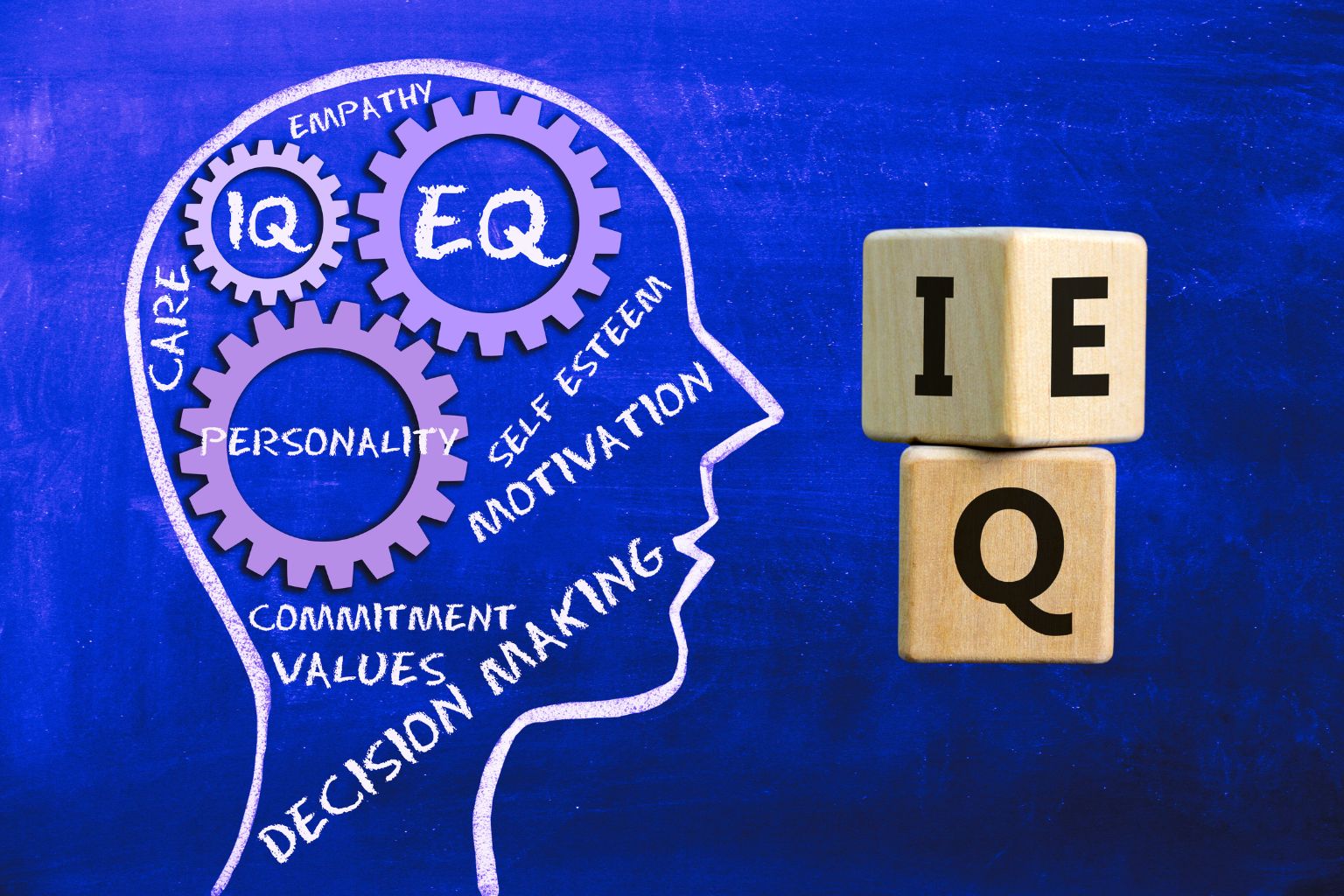

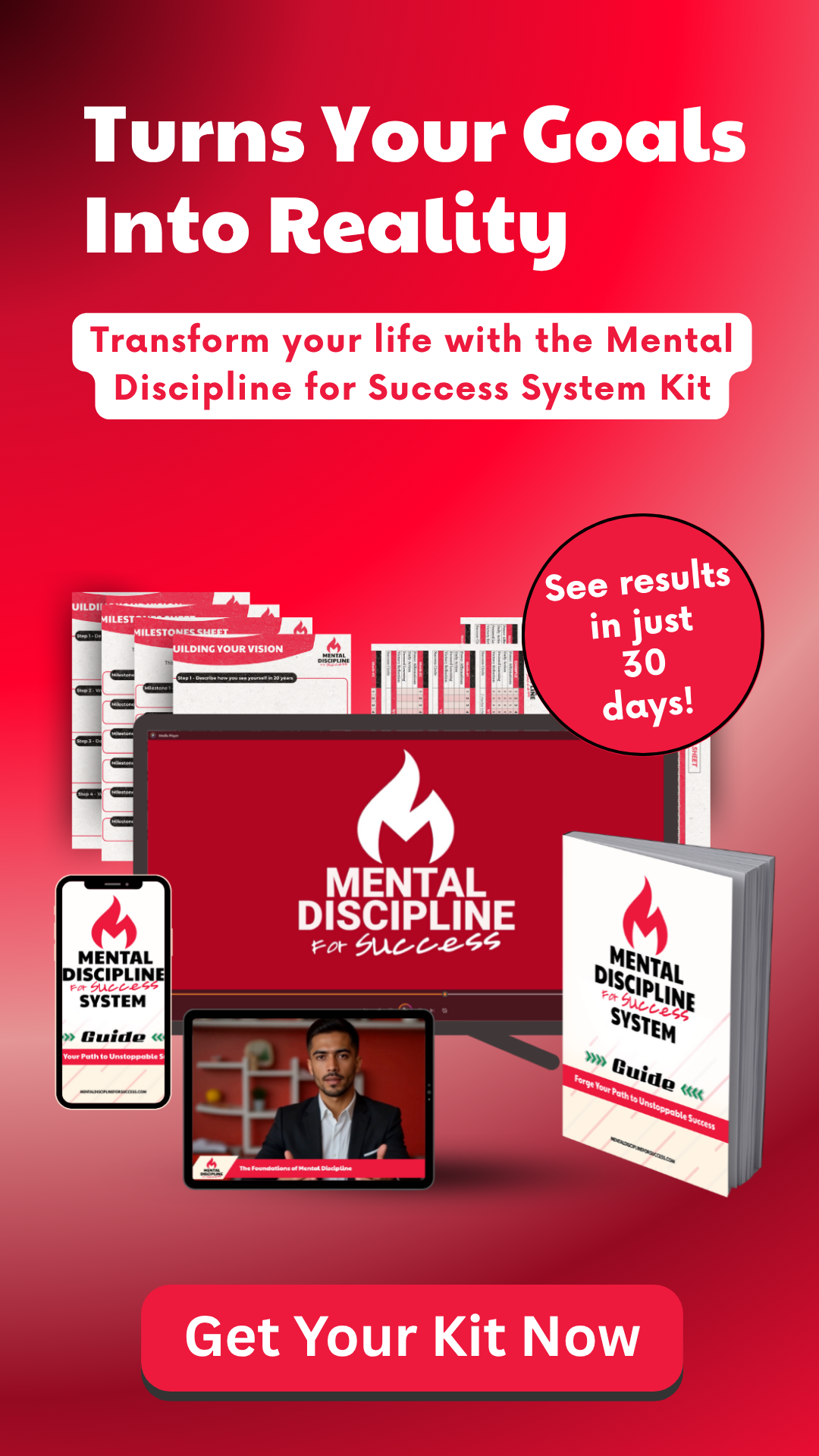
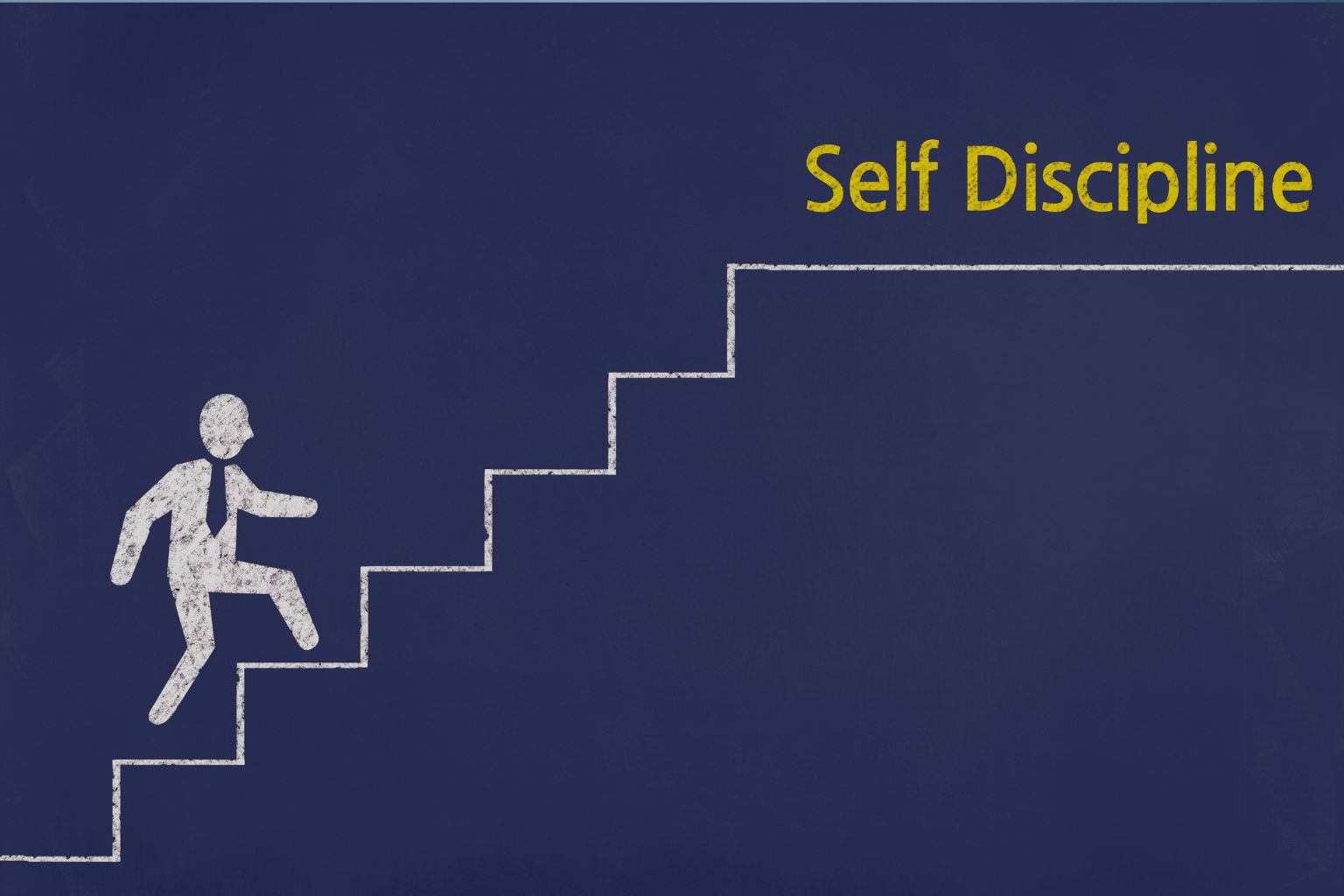

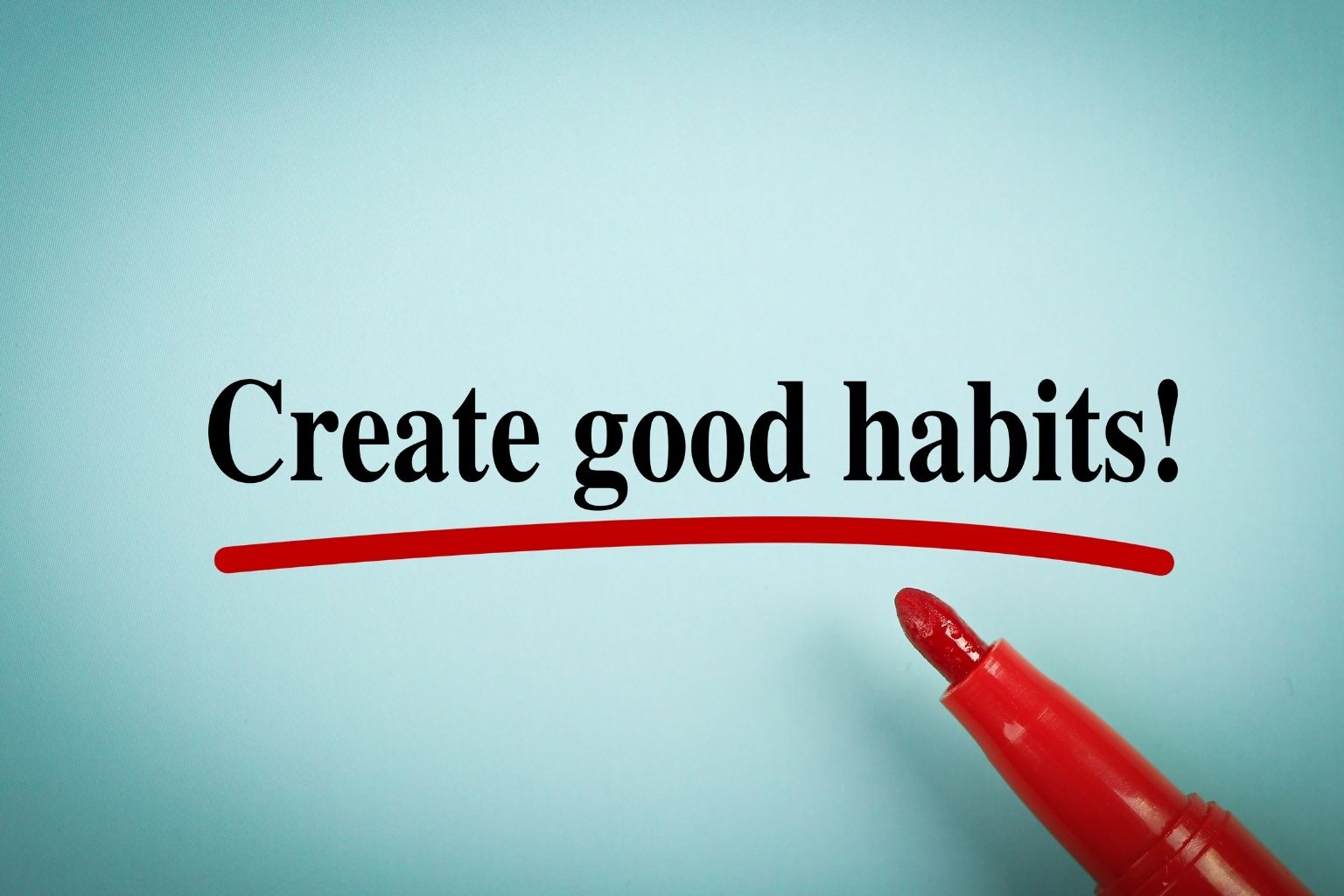



Share it!